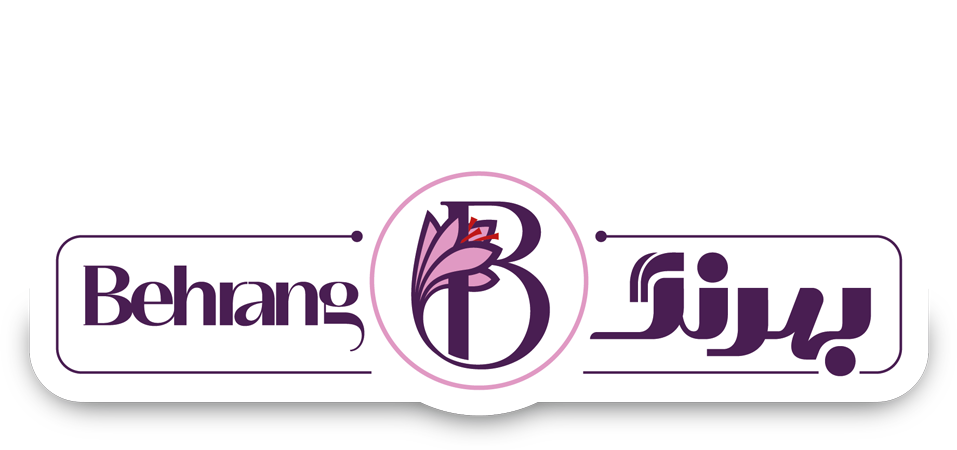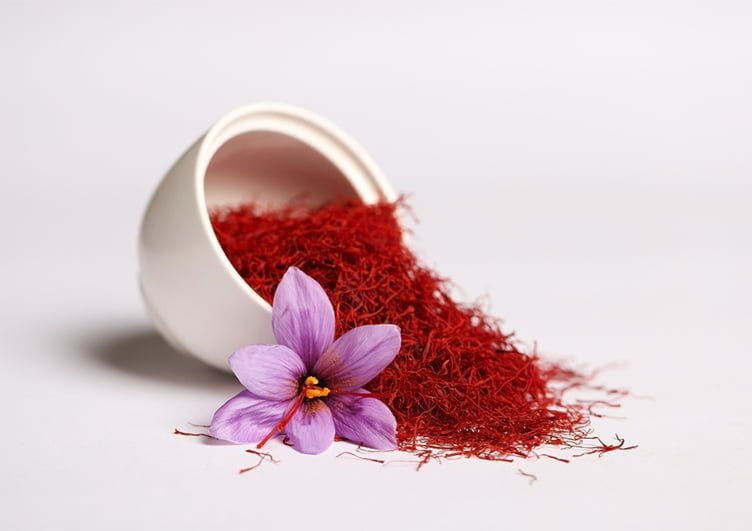The Remarkable Effects of Saffron on ADHD Management
Introduction
ADHD, which stands for Attention Deficit Hyperactivity Disorder, is a neurological condition affecting individuals of all ages, including children and adults. It can significantly affect daily living by manifesting symptoms of inattention, hyperactivity, and impulsivity. Although conventional treatments like therapy and medication are widely used, there is an increasing interest in exploring alternative and natural remedies. The potential advantages of saffron in treating ADHD symptoms have been brought to light, as it is a vibrant spice derived from the Crocus sativus flower. In the following article, we will examine the possible advantages of saffron for individuals coping with ADHD.
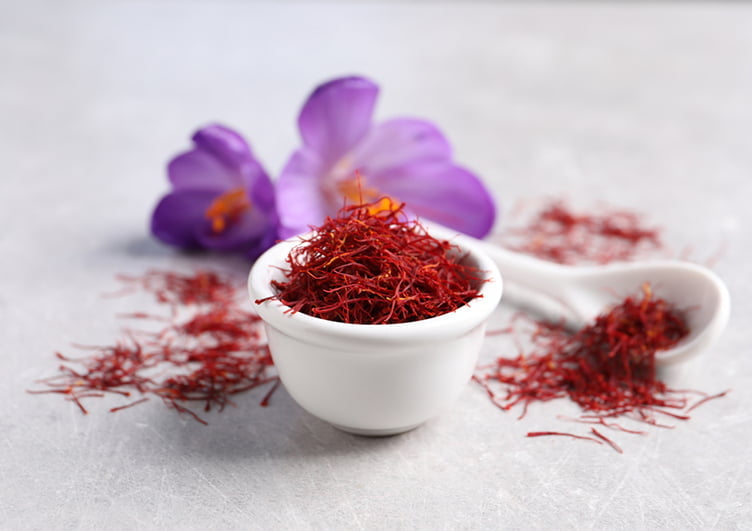
Understanding Saffron
What is Saffron?
Saffron is a vivid crimson spice obtained from the Crocus sativus flower. Its exceptional taste, distinguished scent, and striking hue are widely acknowledged. The valuable herb has been utilized for centuries in conventional medicine and culinary practices.
Nutritional Composition
Saffron comprises various bioactive compounds such as crocin, crocetin, and safranal. The scientific community has shown interest in saffron due to its believed health benefits stemming from these compounds.
The Link Between Saffron and ADHD
Anecdotal Evidence
A significant number of individuals diagnosed with ADHD and their families have reported a reduction in symptoms following the inclusion of saffron in their diets. While anecdotal evidence is valuable, it’s essential to examine scientific research to understand saffron’s potential impact on ADHD better.
Scientific Studies
Several investigations have examined the impact of saffron on symptoms related to ADHD. These studies suggest that saffron may mitigate hyperactivity and enhance the attention span of individuals with ADHD. However, more extensive research is needed to confirm these findings.

Mechanisms Behind Saffron’s Potential
Antioxidant Properties
Saffron is renowned for possessing potent antioxidant properties. The brain’s vulnerability to oxidative stress, which can aggravate ADHD symptoms, is mitigated by antioxidants.
Mood Regulation
Saffron comprises certain compounds, including crocin, that may aid in regulating mood and reducing irritability and impulsivity – two of the frequent symptoms of ADHD.
Incorporating Saffron into Your Diet
Saffron Supplements
Those inclined to use saffron as a natural remedy for ADHD can quickly obtain saffron supplements. Nonetheless, seeking advice from a healthcare professional before commencing any new treatment is imperative.
Although saffron exhibits potential as a natural remedy for managing ADHD symptoms, it is crucial to handle it with care. ADHD is a complex condition, and what works for one person may not work for another. Always consult with a healthcare provider before making any significant changes to your treatment plan.
Some studies suggest that saffron may potentially manage ADHD symptoms due to its antioxidant properties and mood-regulating effects. Nevertheless, it is crucial to comprehend that saffron does not function as a medication for ADHD, and it is not recommended as the only treatment for the disorder.
ADHD is a complex neurodevelopmental condition, and its treatment typically involves a multi-faceted approach that may include behavioral therapy, counseling, and, in some cases, prescription medications. The medications are specially formulated to target the fundamental neurological factors that contribute to the symptoms of ADHD.
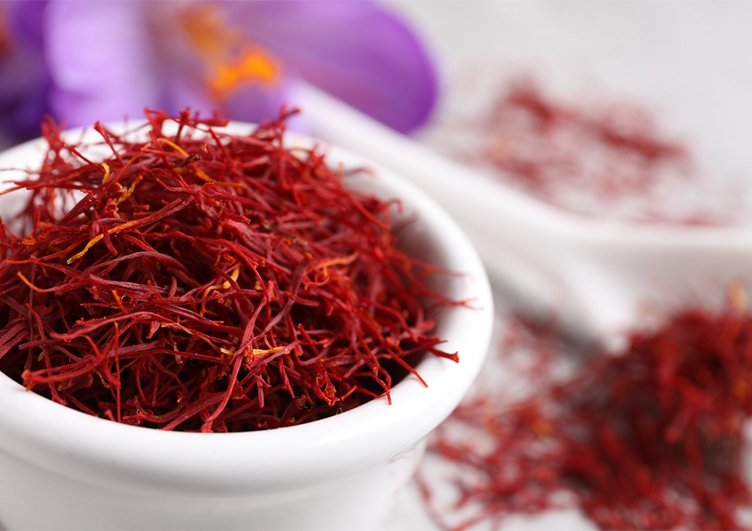
Scientific Studies
Although ongoing research exists regarding the possible influence of saffron on ADHD, it is crucial to acknowledge that the existing scientific studies are somewhat restricted in quantity, and additional comprehensive research is necessary to establish definitive conclusions. Here are some key scientific studies that have explored the relationship between saffron and ADHD:
-
Akhondzadeh S, et al. (2010) Saffron in the treatment of patients with mild to moderate Alzheimer’s disease: a 16-week, randomized, and placebo-controlled trial. – This study, although focused on Alzheimer’s disease, examined the effects of saffron on cognitive function and mood. It found that saffron supplementation led to significant improvements in cognitive function, which could be relevant for managing ADHD symptoms related to attention and memory.
-
Akhondzadeh Basti, A., et al. (2011) Crocus sativus L. (petal) in the treatment of mild-to-moderate depression: A double-blind, randomized, and placebo-controlled trial. – While this study primarily investigated saffron for depression, it’s worth noting that depression often co-occurs with ADHD. The study found that saffron had a significant positive effect on mood, which may indirectly benefit individuals with ADHD.
-
Modabbernia, A., et al. (2013) A randomized, double-blind, placebo-controlled pilot study of saffron for attention deficit/hyperactivity disorder. – This pilot study specifically focused on ADHD. It found that saffron supplementation was associated with a significant improvement in ADHD symptoms, particularly in reducing hyperactivity and impulsivity. However, the study’s sample size was small, and further research is necessary to validate these findings.
-
Akbarian, M., et al. (2020) Crocus sativus L. (saffron) versus methylphenidate in treatment of children with attention deficit/hyperactivity disorder: A randomized, double-blind clinical trial. – This study compared saffron to methylphenidate, a commonly prescribed medication for ADHD. It found that both saffron and methylphenidate were effective in reducing ADHD symptoms. However, the methylphenidate group showed faster improvements, while the saffron group experienced milder side effects.
-
Hosseinzadeh, H., et al. (2014) The effects of Crocus sativus (saffron) and its constituents on nervous system: A review.** – Although not a clinical study, this review article provides valuable insights into saffron’s potential effects on the nervous system. It discusses the various bioactive compounds in saffron and their mechanisms of action, shedding light on how saffron may influence conditions like ADHD.
Nutritional Composition
The possible effects of saffron on ADHD could be ascribed to various bioactive components present in saffron, each possessing distinct properties. While further research is needed to pinpoint the exact mechanism, the following components are believed to contribute to saffron’s impact on ADHD symptoms:
- Crocin: Crocin is one of the primary active compounds in saffron responsible for its vibrant color. It is known for its antioxidant properties, which help protect brain cells from oxidative stress. Additionally, crocin may influence mood regulation and reduce irritability, potentially addressing some of the emotional and impulsive aspects of ADHD.
- Crocetin: Crocetin is another key compound in saffron that contributes to its therapeutic effects. Like crocin, crocetin possesses antioxidant properties, which can protect the brain from damage. Some studies suggest that crocetin may help reduce hyperactivity, a hallmark symptom of ADHD.
- Safranal: Safranal is responsible for the distinct aroma of saffron. While its exact effects on ADHD are less understood, it may play a role in mood stabilization and potentially contribute to saffron’s impact on managing impulsivity and irritability in individuals with ADHD.
It is important to acknowledge that the individual components of saffron likely demonstrate synergistic effects, which collectively contribute to its potential for managing ADHD symptoms. Moreover, ADHD’s intricate nature encompasses diverse neurological and psychological factors, and the influence of saffron is probably multifold. Further research in this area may lead to a more comprehensive understanding of how the components of saffron interact with the ADHD condition, potentially resulting in the development of more targeted treatments in the future.
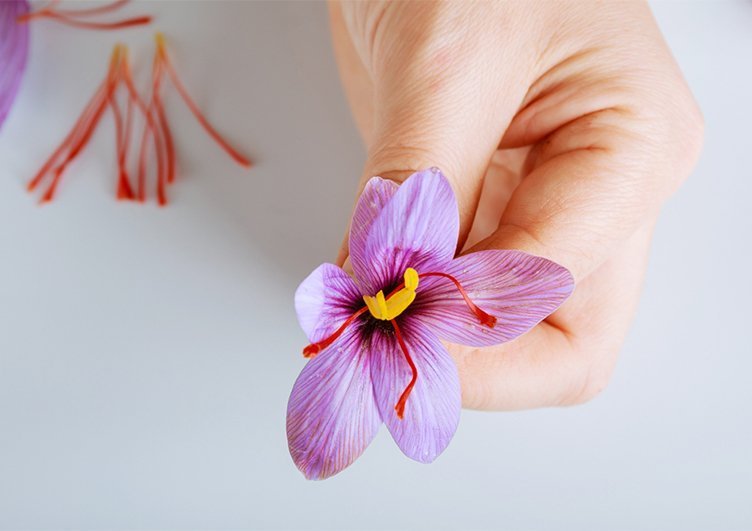
What’s The Benefits of Saffron for Improving ADHD?
Ongoing research and discussion have been devoted to investigating the potential of saffron in managing ADHD (Attention Deficit Hyperactivity Disorder). While some studies and anecdotal reports suggest that saffron may have beneficial effects on ADHD symptoms, it’s essential to approach this topic with caution and consider the following points:
-
Limited Scientific Evidence:
The scientific evidence available is limited to make a definitive conclusion regarding the effectiveness of saffron in treating ADHD. While some studies have shown promising results, these studies often have small sample sizes and may not fully account for other factors that can influence ADHD symptoms.
-
Varied Individual Responses:
ADHD is a complex and highly individualized condition. What works for one person may not work for another. Responses to treatments, including saffron, can vary significantly among individuals.
-
Complementary Approach:
Saffron should not be considered a standalone treatment for ADHD. Instead, it could be used as a complementary approach alongside conventional treatments, such as behavioral therapy or medication. It’s crucial to consult with a healthcare professional before making significant changes to an ADHD management plan.
-
Safety and Dosage:
The established safety and appropriate dosage of saffron supplements for managing ADHD are not well-defined. The consumption of saffron in excess can result in unfavorable outcomes; thus, potential interactions with other medications must be considered.
-
Consult a Healthcare Professional:
Should you or a loved one be considering the use of saffron as a strategy for managing ADHD, it is crucial that you seek guidance from a qualified healthcare professional. The professionals can offer guidance, monitor progress, and guarantee the safety and suitability of the treatment approach based on the specific needs of the individual.
In conclusion, although saffron displays potential in certain preliminary studies and anecdotal accounts, it should not be deemed the principal or exclusive treatment for ADHD. The scientific understanding of saffron’s effects on ADHD is still evolving, and further research is needed to establish its efficacy, safety, and optimal usage for individuals with ADHD. A healthcare provider’s guidance cannot be overstated in developing a comprehensive and evidence-based ADHD management plan.
Conclusion
Although saffron supplements and saffron-infused dishes can be considered supplementary measures for managing ADHD symptoms, they must be utilized in consultation with a healthcare professional. It is not advisable to utilize saffron as a replacement for prescribed ADHD medications or therapies. It is vital to collaborate closely with a medical practitioner to establish the most suitable and efficient treatment strategy for ADHD, considering individual needs and circumstances.

